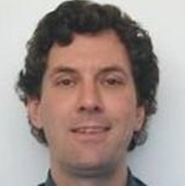Fall 2023 Research Seminar Public Lecture – Professor Craig Muldrew (Cambridge, UK)
Where: Kaplan Hall 193

As part of the CMRS-CEGS Research Seminar graduate course for Fall 2023, Money Matters: Between Antiquity and the Enlightenment (ca. 600-1600), guest lecturer, Professor Craig Muldrew (Cambridge, UK) will share about his expertise in British Social and Economic History from 1500 to 1800.
Craig Muldrew’s research mainly focuses on the investigation of the economic and social role of trust in the development of the market economy in England between 1500-1700, and the living standards and work of agricultural laborer’s in the early modern English economy. He has written articles in the field of legal history concerning debt litigation and its relationship to the nature of community, and articles on the cultural nature of money, and wages in the early modern period. He is currently engaged on a long term project examining the development of the concept of self-control and its effect on the structure of community and on the creation of savings, as well as how local paper credit came to be trusted in eighteenth century England.
“Money” is a Fall 2023 graduate course designated as a CMRS Center for Early Global Studies Research Seminar which provides funding for guest scholars to lecture and work closely with students. Taught by Professor Debora Shuger (English) and Associate Professor Arvind Thomas (English), this Research Seminar will look at a diverse range of premodern texts concerning the emergence and expansion of economic thought/ practices and their socio-political, literary, religious, and aesthetic implications.
Questions about the event?
Visit The CMRS Center for Early Global Studies website.